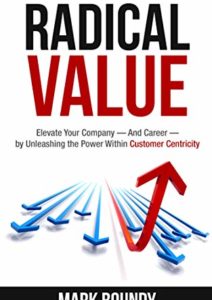I’ve been helping salespeople and sales leaders become better at their craft for a while. I’ve seen greatness and, well, less great. Here are some of the all-time worst things I’ve heard salespeople tell themselves or their managers, actually thinking they were doing well. (I’m not including anything I’ve heard from salespeople who knew better and were just trying to get away with something. That’s a whole different set of lessons).
It’s the Company’s Job to Make a Profit at the Price I Sold
Far too many sales forces are divorced from the responsibility of business: to make a profit. This happens regularly in companies compensated only on revenue, not on margins. I don’t care if “it’s hard to measure profit on a given deal because of internal transfer prices” or any other excuse. If a sales force isn’t compensated for profit, they focus on easy-to-win revenue.
When this is carried to an extreme, salespeople feel entitled to sell at discounts…even insane discounts. I actually heard this from a guy who claimed to be a sales consultant. I hope his clients survived.
Here’s what sales leaders should coach instead. You need to have conversations about customer value…with customers. This shouldn’t stop with selling value. It should carry through toward monetizing value with the customer. Then, pricing – even premium pricing – becomes a comfortable afterthought. High pricing becomes a bargain.
Great salespeople can sell high volume and high margins. I know. I’ve seen it. In the mirror.
But I TOLD Him/Her ____
Sales is not one of those jobs where you can get away with simply “telling”, making your listener responsible for understanding what you meant. Those jobs exist in departments like accounting (and such poor communicators seldom rise to middle management).
The commission for “I did my job, but the customer misunderstood” is zero. Salespeople are responsible for the picture that forms in the other guy’s head.
Value exists only in a customer’s mind. If a salesperson simply barfs some “value messaging” they were given by marketing…without having a conversation to confirm that value formed between a prospect’s ears, they are a teller, not a seller. If that seller doesn’t also confirm how much value formed, they may be the person who thinks “it’s the company’s responsibility to make a profit at the price I sold”.
Our Value is [insert feature here]
The most critical question a sales coach can ask is “what’s our value in this situation?” In fact, if that’s the only question a coach asks, they can learn a lot about how sellers are selling. When sellers have great answers to this question, they probably did everything your methodology teaches them to do. If answers don’t articulate understanding of customer value, it doesn’t matter how many methodologies they performed; the sale is still in trouble.
When salespeople answer “what’s our value” with a feature or a seller capability, they don’t understand value. Customers buy outcomes, not products or services. Value forms in the customer’s mind around those outcomes, not your shiny features or stunning capabilities.
Sales coaches who allow value to be described in terms of a seller’s features or capabilities are failing their salespeople. Value is desirability of an outcome (hopefully measured in dollars or something just as measurable). Accept no substitutes.
Customers Don’t Buy Your Product, They Buy You.
Slavery is illegal. Customers can’t buy you. As I said above, customers buy outcomes.
This old saying has merit but is meant to communicate how important the seller-customer relationship is. Specifically, the critical aspect of “relationship” is credibility. Personal affinity (knowing birthdays, hobbies, expending entertainment budget, etc.) is useful for some buyer-seller relationships, but not for many.
Credibility, though, is foundational to every successful customer relationship. When a customer is considering some purchase to obtain an outcome, they always consider execution risk. That is, they estimate how likely it is that the purchase will actually result in the desired outcome. Salesperson’s credibility forms the foundation of that assessment. Without credibility, very little buying will actually happen.
Yes, they buy as a result of your credibility while connecting their desired outcome to a purchase, but…they’re buying the outcome. Always.
Purchasing Says They Like Our ____ Better, but We Have to Meet the Competitor’s Price
I know a number of purchasing people, and they all confirm this truth:
Modern purchasing/procurement professionals are chartered with buying the best total value.
These same purchasing people confirm this truth as well:
Modern purchasing/procurement professionals are not chartered, trained, paid, or given enough time to proactively uncover and evaluate total value.
So…whose job is it to assemble a value picture for them? That’s right. A seller’s. Professionalism and bedside manner counts. Credibility counts even more. Enlisting the evaluations of experts within the buying organization to validate the value story is often part of the game.
If a seller doesn’t assemble a validated value picture, value doesn’t form in a purchasing person’s mind, and guess what they use to break the tie? Yep. Price. They like ___ better means they do indeed like it better, but nobody helped monetize that for them…and they aren’t chartered, trained, paid, or have time to do it themselves.
Purchasing Owns the Budget
Purchasing really owns the budget for supplies and equipment used in the purchasing department. Period. Salespeople who are led to believe purchasing owns a budget is incorrect. Sales coaches who let them work under this misconception are damaging careers and losing sales.
Whenever purchasing makes you believe they own the budget, it’s because they believe your offer has no differentiated value. In their minds, there is no need to bother people inside the company with a nonexistent value proposition. In fairness to purchasing, letting a seller of a non-differentiated product/service shouldn’t happen. Undue influence, like “whiskey and tickets” shouldn’t shape a commodity purchasing decision. If your offer’s only differentiation is courtside seats, that shouldn’t be allowed to shape a decision.
As your offer’s differentiation diminishes vs. the next viable choice, the need to analyze value diminishes, and the entire buying organization feels safe in delegating the buying decision to purchase. Purchasing doesn’t technically own the budget in these cases, but the organization gives de facto authority to purchasing. This only happens, though, when sellers create no value in the customer’s mind. These are the kind of sales environment that is about to be conducted by bots, AI, etc.
I’m Talking to All of the Right People.
Complex B2B sales methodologies help sales professionals organize their selling efforts among a multi-person buying ecosystem. While they’re handy for organizing an approach to an identified set of people, they aren’t that great at identifying all of the appropriate parties. Most simply tell you “identify everyone, then use our tool”.
When somebody at a customer tells your salesperson the set of people they’ve engaged internally, how does a salesperson – or their coach — know that list wasn’t kept short in order to make somebody’s job easier? Should you expect anyone at your customer to know how all of your capabilities translate to outcomes throughout their company?
Here’s the reality: companies silo themselves more narrowly every year. Silos become sub-specialties, then sub-sub-silos, then soda straws. Only one soda straw has the budget to buy your offer, but many benefits. As customer subdivide, more soda straws benefit. People in your budget-holding soda straw have three things working against them: 1) they no longer have a big-picture view of their own company 2) engaging all the people they really should make decision complexity awful and dysfunctional simply from a committee size standpoint 3) nobody at the buying company has your sellers’ expertise in the domain of possible outcomes.
If your selling organization hasn’t built the business acumen to help customers navigate these challenges, it won’t happen. Customers aren’t equipped – and shouldn’t be. That’s your job.
Summing Up.
I hope you didn’t find any of these hitting home. If you did, though. I’m here to talk. Contact me if you’d like to stop hearing these statements in your sales organization.
To your success!












Comments (4)
Great article Mark, The gap created by unprofessional Buyers/Procurement guys has made it easy for sellers to sell but this some times comes with budget control and constraint, Most at times they are not the final decision makers.
it is really nice business orientation Quote, I learn a lot from this!!!
Awesome article… I have enriched my business orientation
This is very insightful. Thank you for that information.